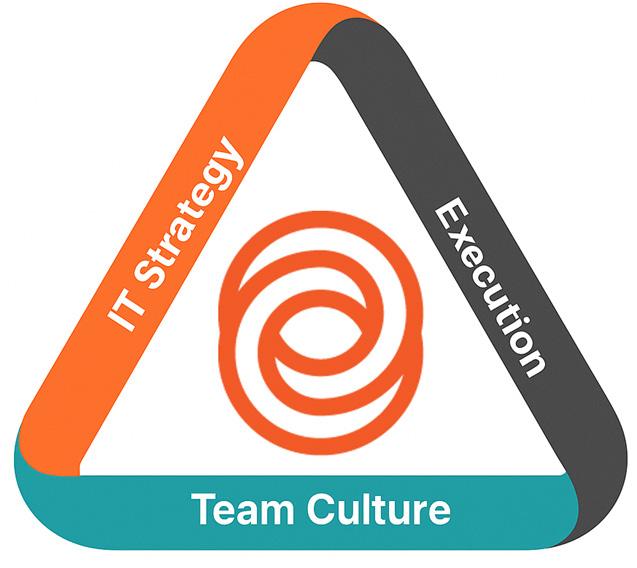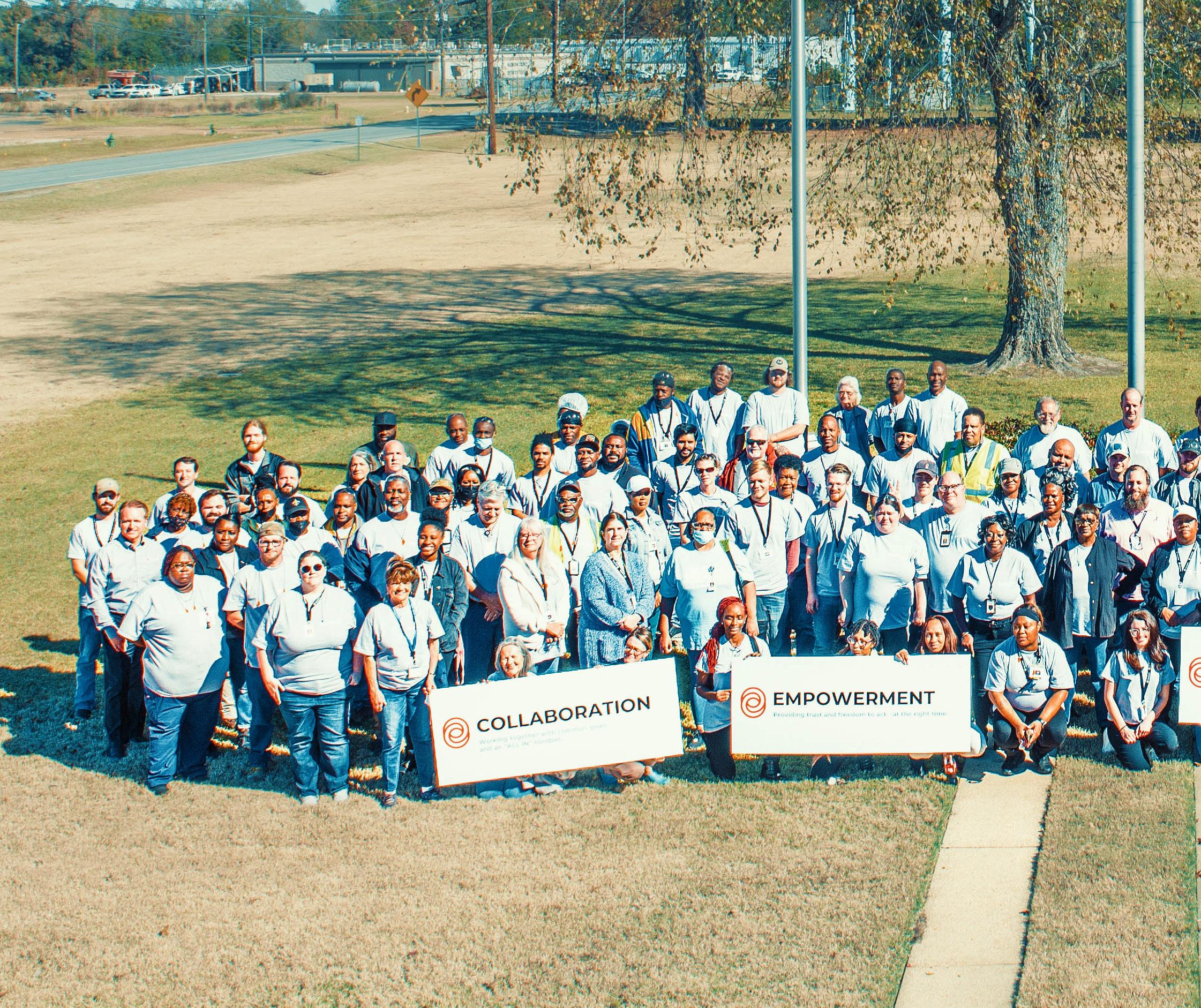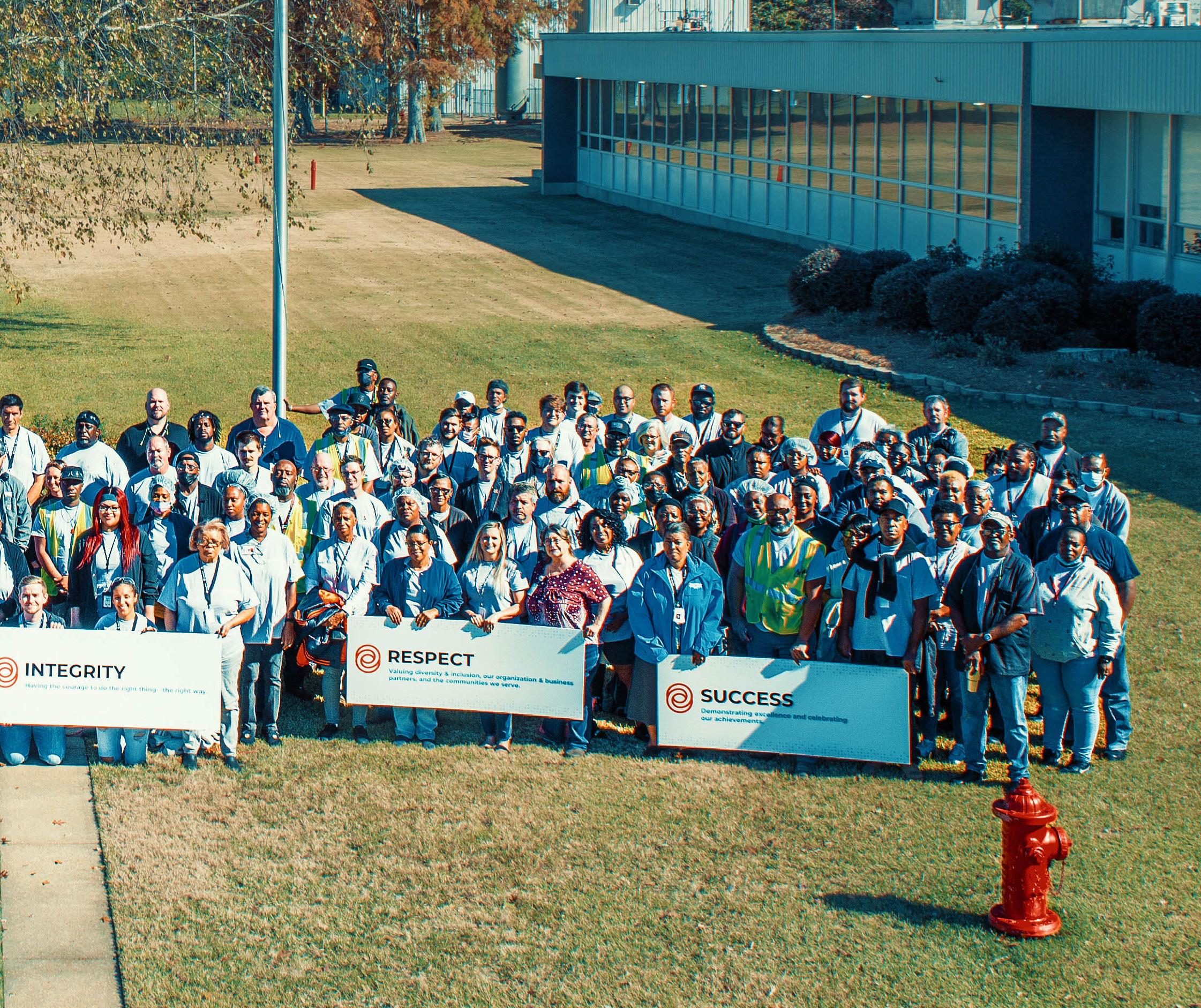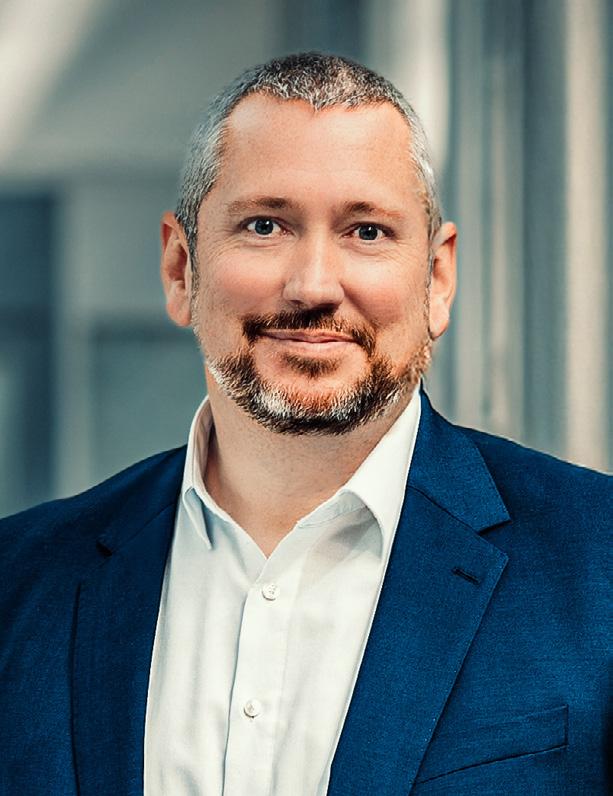Where great teams



As Solero Technologies continues to evolve into a top global automotive supplier, the role of IT has become pivotal in enabling seamless integration, operational efficiency, and strategic growth. At the center of this digital journey is Jeremy Miller, Chief Information Officer, who brought his deep expertise in enterprise systems, cross-cultural leadership, and digital transformation to guide Solero through the complexities of post-acquisition integration and global expansion. In this insightful conversation, Jeremy shares how he’s shaping a unified IT culture, building resilient infrastructure, and aligning global strategy with local intelligence. From driving cybersecurity maturity and talent development to exploring emerging technologies like AI and XR, his approach is both pragmatic and forward thinking. He also reflects on how personal passions, like off grid travel with a mischievous wolfdog, inform his leadership style and approach to problem solving.

Having joined Solero after its acquisition of Kendrion’s automotive business, how has your transition been, and what unique perspectives have you brought to your role as CIO?
Joining Solero during the acquisition brought both complexity and exciting opportunities. I had been Global Head of Enterprise Business Solutions at Kendrion since 2020, so I already knew some of the systems, the processes, and importantly, the people. That helped smooth the transition and gave me a head start in identifying where things might fall through the cracks, especially when it came to aligning IT systems and organisational structures.
One thing I’ve found particularly helpful is having a global perspective. I’m originally from the U.S., but I’ve worked extensively across Europe, including opening and managing a manufacturing facility. That blend of operational and IT experience has helped me bridge cultural and business differences, which has been vital as Solero shifts from a U.S.-centric company to a truly global one.
What were the primary IT challenges during the integration of Kendrion’s automotive business into Solero, and how did you address them?
The biggest challenge was navigating the sheer complexity of the inherited systems. Every European location had its own setup, often undocumented or dependent on institutional knowledge that wasn’t part of the transfer to Solero. Our first step was almost detective work: mapping out what we’d inherited and stabilising operations without interrupting the business. Luckily the US Solero Leadership team had contracts with Alpha Helio to start mapping out the dependencies well before we had an internal global IT Team.
At the same time, we had to build a new IT team from scratch. That meant quickly filling critical roles in cybersecurity, business applications and infrastructure. We’ve since grown the team through both recruitment and internal promotions. I’ve been incredibly impressed with everyone’s willingness to learn, adapt, and take ownership, whether it’s diving into regulations, learning our network architecture, or strengthening our cybersecurity posture.
We also had to build a new global network and a European data center from the ground up, while everything else was still in motion. It wasn’t just about infrastructure; it had to be scalable, secure, and compliant from day one. Partners like Alpha Helio were key, bringing deep expertise and a solutions-first mindset.



With Solero’s expanded global footprint, especially in Europe and the U.S., how are you aligning the IT strategy to support diverse regional operations?
We’re aiming for what I call “global consistency with local intelligence.” That means creating unified systems and processes wherever possible, while allowing for local or regional adaptations when truly needed. It’s a hybrid approach that balances efficiency with flexibility.
One complexity we’re navigating is the variety of regulations and business expectations, not just between the U.S. and Europe, but within Europe itself. Every country has its own nuances, from data privacy requirements and tax reporting to work practices. So, our IT strategy has to be both globally aligned and regionally responsive. To make this successful we need to foster a strong business partnership, utilizing their expertise and deep domain knowledge.
Looking ahead, Solero has global ambitions, so we’re designing our systems to scale, not only in terms of infrastructure, but also our approach to data, security, and governance.
At the core of our IT strategy is a clear vision: to enable sustainable growth by equipping every team, from finance and operations to sales and product development, with the tools and insights they need to make faster, more informed decisions.

In your role, how do you approach strengthening cybersecurity across Solero’s global operations, especially with the recent expansion?
As Solero continues to grow globally, cybersecurity has become an even greater strategic priority. We’re taking a risk-based approach, identifying our most critical assets and potential vulnerabilities, then focusing our efforts where they’ll have the most impact. That helps us allocate resources effectively and implement the right controls in the right places.
We’re also designing systems and processes to align with leading industry standards like TISAX, ISO/ IEC 27001, and IATF 16949. These frameworks are especially relevant in the automotive sector, where both compliance and customer trust are essential.
On a technical level, we’ve implemented layered defenses including endpoint protection, advanced threat analytics, continuous monitoring, and well-defined incident response protocols. But cybersecurity isn’t just about tools, it’s about people, too. That’s why we’re investing in company-wide awareness training. Ultimately, cybersecurity is no longer just an IT issue, it’s a business wide responsibility, and we’re embedding that mindset into everything we do.

How are you managing data governance to ensure compliance with varying international regulations and to maintain data integrity?
We’re in the process of establishing a comprehensive data governance framework to support both compliance and operational efficiency across our global footprint. As we expand, ensuring that data is accurate, secure, and handled responsibly has become a top priority, especially given the range of regulatory environments we operate in.
Our approach focuses on creating standardised data practices that can scale globally while remaining flexible enough to meet local compliance requirements. That includes defining clear data ownership, setting consistent policies, and implementing tools that provide visibility, traceability, and ensure data integrity.
While it’s still a work in progress, we’re taking a purposeful, proactive approach. Co-ownership with business and cross functional teams will play a key role in embedding strong data stewardship practices throughout the organisation.
Ultimately, we’re building a governance model that not only meets today’s requirements but is resilient enough to adapt as both our business and the regulatory landscape evolve.
How are you building a unified IT culture across Solero that includes legacy members from both organisations and new team members?
We knew early on that merging three different IT perspectives: Solero, the acquisition, and new recruits would be both our biggest challenge and our greatest opportunity. That’s why culture became the foundation of our Solero IT Success Framework. For us, culture means shared values, principles, and behaviors that empower teams to collaborate, innovate, and drive results.
Getting the team fully onboarded, aligned, and motivated wasn’t just a priority, it was the only way we could successfully carve out legacy IT systems and build a cohesive, integrated infrastructure. The complexity of the work, standing up new networks, securing global operations, and aligning platforms, couldn’t have been achieved without a culture rooted in integrity, collaboration, and empowerment.
As the graphic says: “Culture eats strategy for breakfast and technology for lunch.” It’s more than a clever play on the Peter Drucker quote, it’s a reminder that no matter how strong your roadmap or tech stack is, it’s the people and shared values that drive sustainable success. That mindset continues to fuel our transformation.


Let our vast experience in Enterprise Cybersecurity and Managed IT services work for you by having us assess your entire technology strategy and landscape.
CxO Services and Consulting
Fully Managed IT Services
Complete Security Assessment/Planning
Security Architecture
Risk Management
Security Strategy and Training

Stay ahead in the digital era with AlphaHelio, a leading IT and Cybersecurity provider committed to safeguarding your business. From small startups to large enterprises, we deliver enterprise-grade solutions tailored to your business transformation needs.
At AlphaHelio, we understand that every business faces distinct challenges. That’s why we o er scalable IT and Cybersecurity solutions designed to grow with you. Whether you need fully managed IT services, cybersecurity planning and implementation, or specialized project support and augmentation, our team of experts is here to provide cutting-edge technology and strategies that maximize productivity and minimize risks and exposure to security concerns. AlphaHelio has extensive experience in providing strategy, planning, and execution of various IT solutions including custom development and infrastructure build-out in support of merger and acquisition initiatives. As an example, in partnership with Solero Technologies, we were able to develop a strategy and implementation cadence that seamlessly integrated six acquired manufacturing plants into their existing business and technology landscape.
Partner with us to gain peace of mind knowing your digital assets are protected by years of enterprise experience. AlphaHelio provides seamless integration, robust security frameworks, and dedicated support that empowers your business to thrive in today’s fast-paced, technology-driven world.
Secure your future with AlphaHelio - where enterprise-grade security meets business agility and transformation.
Can you share your approach to talent development within the IT department, and how you’re fostering innovation and growth among your team?
From the outset, it was critical to build a global IT team that not only brought strong technical skills but could also quickly adapt to a new and evolving environment. Given the complexity of our systems, new team members were expected to rapidly learn the landscape, document their findings, and actively share knowledge across the team.
To support ongoing development, Solero introduced a mentorship program that pairs experienced professionals with emerging talent. This fosters collaboration, accelerates learning, and deepens understanding of the broader business.
We also promote a culture of continuous learning , encouraging certifications, conference participation, and staying current through relevant reading and training, as well as stretch assignments to encourage growth. By investing in our people, we’re not just strengthening technical expertise, we’re creating an environment where innovation is expected, supported, and shared.

Given your certification in Digital Transformation from MIT, what initiatives are you leading to drive digital innovation at Solero?
Following the acquisition, our first priority was integrating the acquired companies into a unified global IT network, internally dubbed the “Solero-Sphere.” This became the foundation of our broader digital transformation journey, ensuring connectivity, consistency, and scalability across all operations.
A major part of the integration involved reducing legacy systems by harmonising applications wherever possible. By standardising our technology stack, we simplified the IT environment, enabling faster decision making and improving efficiency across regions.
With the integration phase now behind us, we’re shifting focus to deeper harmonisation and digitalisation. We’re modernising workflows, enhancing data accessibility, and introducing more automation across functions. These efforts aim to unlock the full potential of the Solero-Sphere, driving long term value through technology driven innovation.


How is the IT department contributing to Solero’s goals of electrification and sustainability in the automotive industry?
It’s definitely part of the picture. By retiring fragmented legacy systems and transitioning to a centralised infrastructure, we’re improving energy efficiency and reducing our environmental footprint.
We’re also partnering with vendors that prioritise digital supply chains and sustainable practices. Our IT decisions are aligned with this broader goal, focusing on efficiency, transparency, and long-term responsibility.
What emerging technologies do you foresee having the most significant impact on Solero’s operations in the next 3–5 years?
AI and machine learning are at the top of the list, particularly for predictive maintenance, quality control, and real-time decision support. We’re also exploring IoT and edge computing to enhance responsiveness on the factory floor.
Another exciting area is extended reality (XR) for training and remote support. This could be a game changer for vendor audits or technical troubleshooting, especially as we expand globally and look to reduce travel.
And of course, we’re closely monitoring sustainable IT practices, consolidating systems, retiring outdated hardware, and investing in infrastructure that is both powerful and energy efficient.
Balancing a demanding role, how do your personal interests, such as hiking and exploring Europe in a campervan, influence your leadership style and approach to problem solving?
Spending time outdoors, whether hiking or traveling through Europe in our campervan, helps me reset and gain fresh perspectives. It’s often during those off-grid moments that I find solutions to problems that seemed stuck before.
We usually travel with our dogs, including Hopper, our smart but mischievous wolfdog. He’s taught us a lot about being proactive. If there’s a way to get into trouble, he’ll find it, so we’ve learned to think ahead and design around him.
It’s actually a lot like IT security: you can’t assume things will go to plan, so you build guardrails and stay one step ahead. It’s a funny comparison, but it genuinely reflects how I think about systems and leadership. Stay curious, stay adaptable, stay alert, and of course, be ready for the unexpected.
Solero Technologies is a global supplier of controls, offering a comprehensive range of actuator and solenoid valve solutions that energize many automotive systems, including Transmission & E-Drives, Active Suspension, Thermal Management, Engine, and Comfort. We have served the automotive industry for more than 100 years with a reputation for safety, quality, and precision.

Jeremy Miller Chief Information Officer